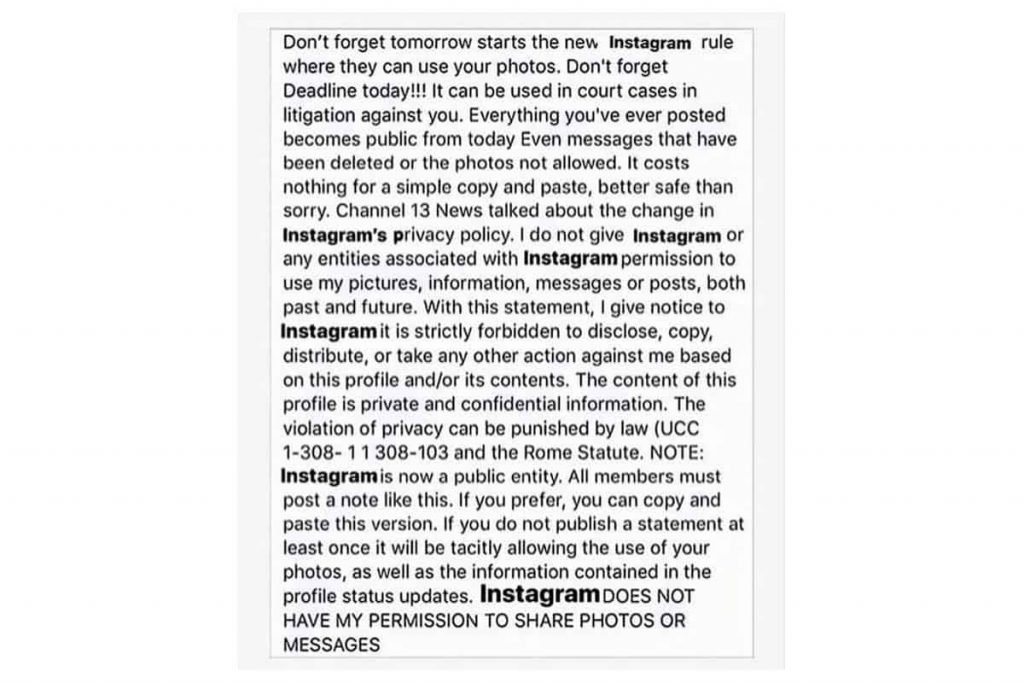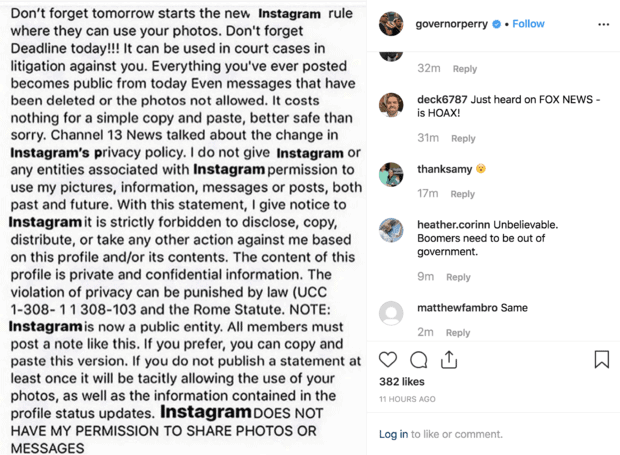Instagram denied a viral post claiming that social platform change her Privacy Policy her. The hoax, which has already been shared by several celebrities, asks users to reshare it to stop Instagram from using their users' content, including deleted messages.
"This post is not true," Facebook spokeswoman Stephanie Otway told CBS News.
The hoax, which is riddled with typos, has already fooled the energy ministers of USA Rick Perry, Rob Lowe, Melissa Joan Hart and Usher and probably many others.
The hoax states:
"Do not forget that tomorrow the new Instagram regulation that allows them to use your photos starts. Do not forget the Deadline !!! ”
"Everything you have posted will be made public from today, even deleted messages or photos are not allowed," he falsely claims.
"A simple copy and paste costs nothing."

US Secretary of Energy Rick Perry shared the hoax on his Instagram page, but later deleted it.

In an effort to appear credible, the scam αναφέρει ένα “News Channel 13” which revealed the changes in Instagram policy, and also mentions the law “UCC 1-308-11 308-103” and “the Rome Statute”.
UCC 1-308-11 308-103 seems to refer to a single commercial law, while the Rome Statute is the treaty established by the International Criminal Court, which investigates and prosecutes crimes such as genocide or other war crimes. So it can't protect you from a supposed change in Instagram policy.
This type of prank often appears in slightly different versions. Many times we have seen it widely circulated in Facebook.
_______________________
- People who share selfies online are considered unstable
- Bitdefender fixes a bug in 2020's Free Antivirus
- Android new logo and name without sweets




